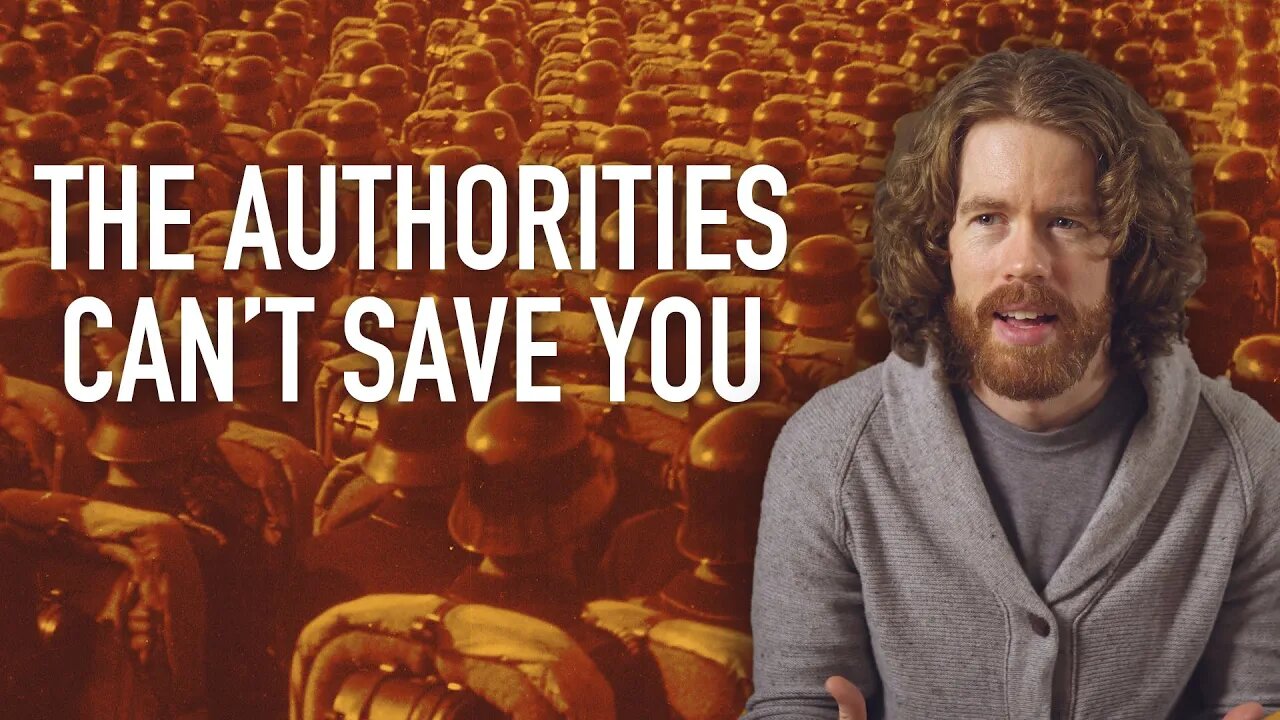Premium Only Content

The Authorities Can't Save You
Music written and generously provided by Paul Jernberg. Find out more about his work as a composer here: http://pauljernberg.com
Spanish translations by Vélez Translations, http://www.veleztranslations.com
When most people hear the word authoritarianism, it naturally conjures a range of negative associations. We tend to think of dictators, wars, and genocides.
And it’s probably a good thing that it does produce those kinds of associations because despotism isn’t something that anyone wants, but it seems to me that the unprecedented fragile peace and prosperity that so many generations have known now is never far from that edge.
I know that sounds really provocative for many people, so just bear with me for a second. Let’s start by defining what authoritarianism is. It’s the advocacy of strict obedience to authority at the expense of personal freedom.
In other words, if you’re looking for a solution to a problem, instead of letting individuals find a practices that work best for them, we all look to some authority to provide a solution and then insist that everyone strictly abide by it.
And there are quite a few glimpses of this kind of thing, alive and well, in our society today. Every time someone says, “The science is settled”, they’re making an appeal to authority. They’re saying, the people who know better have definitively said so, and therefore, we all need to adjust our voting habits, our policies, and even our laws to reflect what they say.
That is authoritarianism. So why might that be a problem?
GK Chesterton, who always has a witty and precise way of making his point, said this: “It is a good sign in a nation when things are done badly. It shows that all the people are doing them. And it is bad sign in a nation when such things are done very well, for it shows that only a few experts and eccentrics are doing them, and that the nation is merely looking on.”
And I tend to agree with him because the point about us living our lives isn’t to do everything perfectly right. The point is that everyone gains enough experience to learn what we’re supposed to learn in the time that is given us and that includes making mistakes as one of the best teachers.
So in a fascist or communist state, only the people who have been given explicit permission to do certain things or say certain things are able to do so. The rest have to wait for their marching instructions. They become nothing more than cogs in a machine fit for someone else’s utilitarian ends.
But if that thought isn’t scary enough, what about the fact that placing all of our trust in authorities depends on the premise that those authorities will conduct themselves ethically.
Read the whole transcript at www.brianholdsworth.ca
-
 10:56
10:56
Brian Holdsworth
1 year ago $0.01 earnedThe Our Father is Sexist?
3782 -
 54:04
54:04
IsaacButterfield
6 hours ago $0.47 earnedTrump Hates Australia, Bonnie blue Vs Andrew Tate & Man Proposes To AI
17.3K3 -
 3:17:46
3:17:46
SlingerGames
3 hours agoWe Gaming Tonight | Creator for @SMKAcademy
5.33K -
 LIVE
LIVE
GrimmHollywood
15 hours ago🔴LIVE • GRIMM HOLLYWOOD • GRIMM STRANDING DAY 3 • STREAM DOESN'T END TIL I BEAT DEATH STRANDING
367 watching -
 49:03
49:03
The Quartering
4 hours agoFirst Play Through! Clair Obscur: Expedition 33
28.3K3 -
 3:37:35
3:37:35
Saycred Angel Live
5 hours ago🍻FRIDAY FAMILY FIGHT NIGHT🍻!TANGIA | !GIVEAWAY #RUMBLETAKEOVER
18K1 -
 1:04:06
1:04:06
The Charlie Kirk Show
6 hours agoTHOUGHTCRIME Ep. 88 — Tucker v. Cruz? The Bloodthirsty Base? Charlie Goes to the WNBA?
69K42 -
 DVR
DVR
I_Came_With_Fire_Podcast
15 hours agoCHINA WANTS IRAN | Stream Wins | The FED | G7 VS. CHINA
32.7K9 -
 10:53
10:53
China Uncensored
5 hours agoI KNEW This Was Coming!
21.9K6 -
 4:42:47
4:42:47
SynthTrax & DJ Cheezus Livestreams
1 day agoFriday Night Synthwave 80s 90s Electronica and more DJ MIX Livestream Art & Sound Edition
37.5K